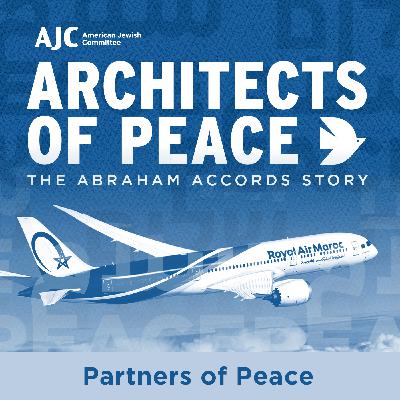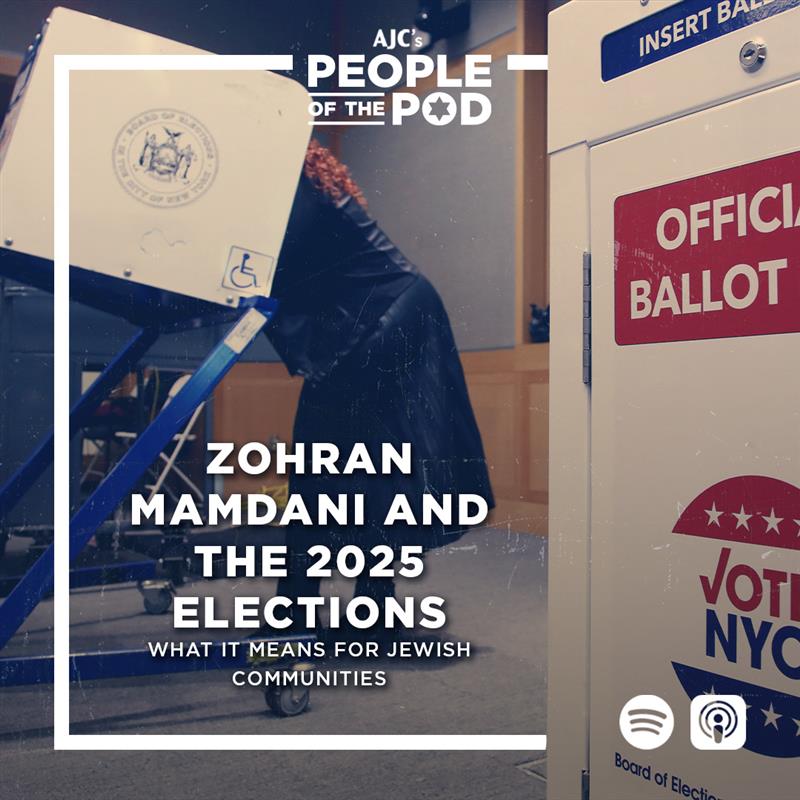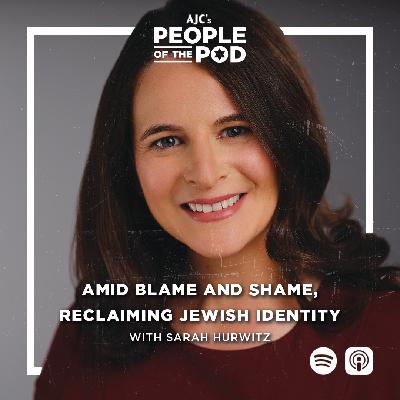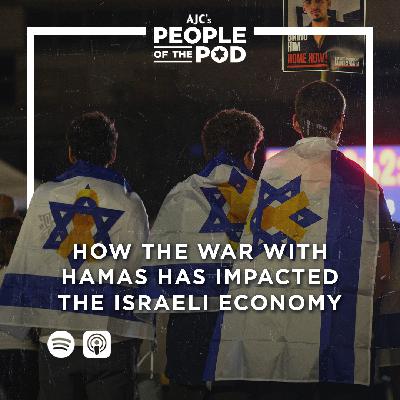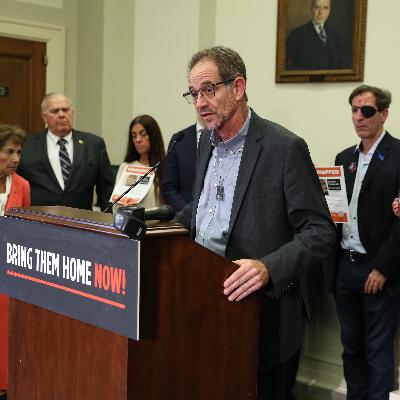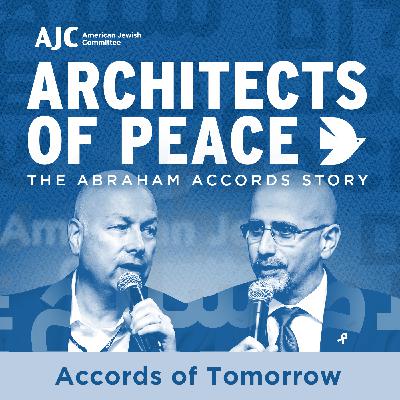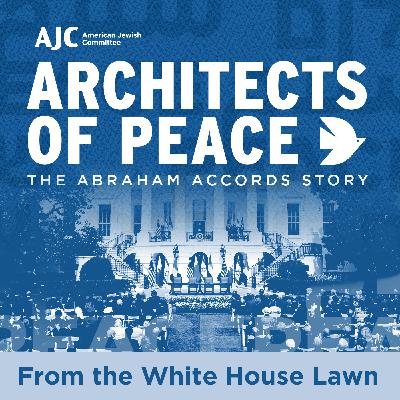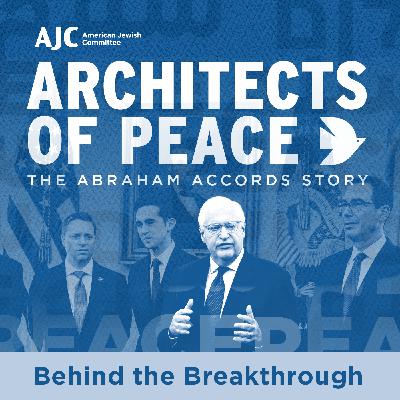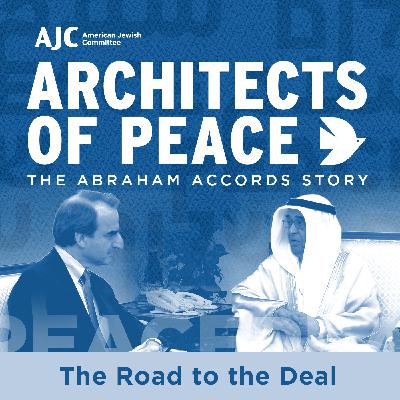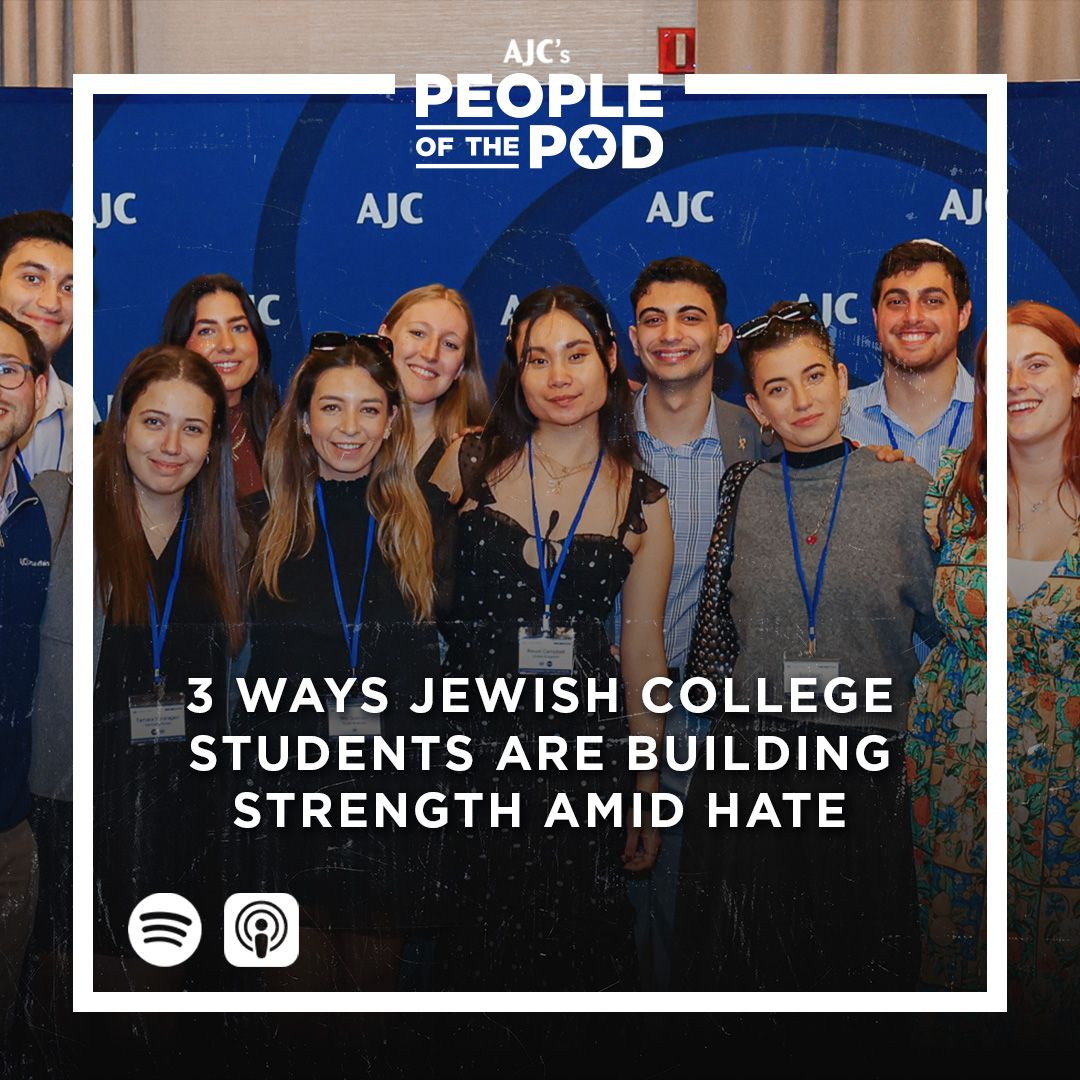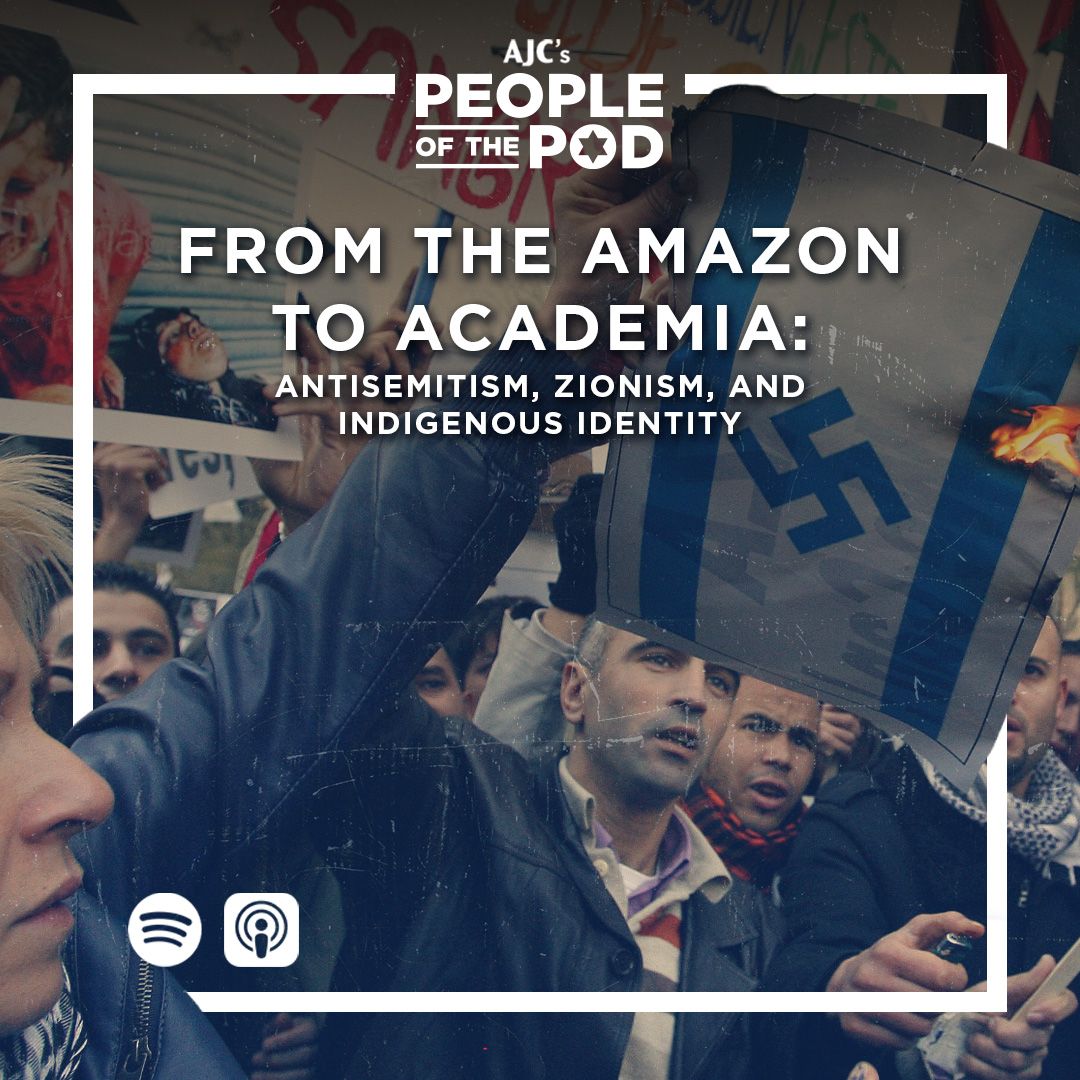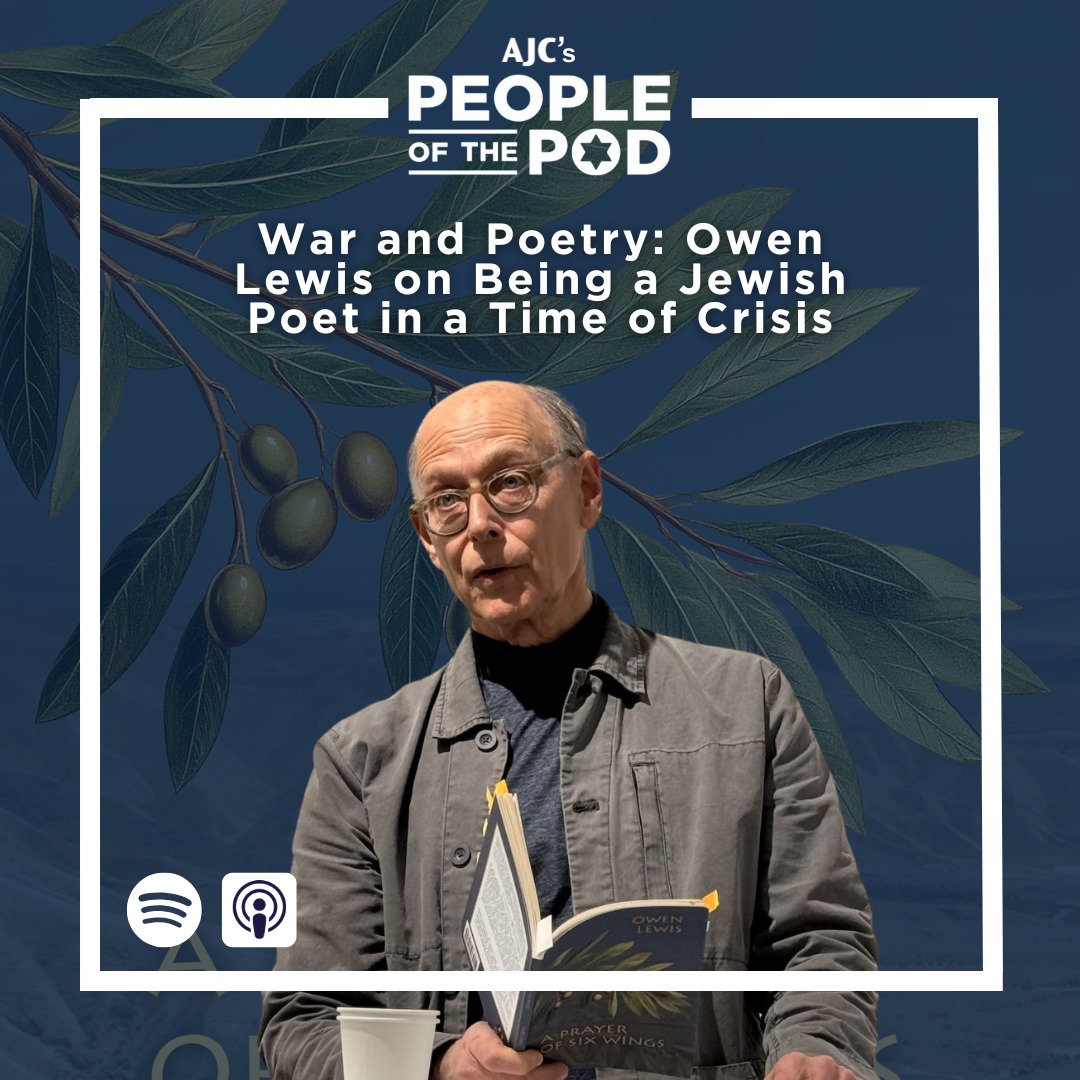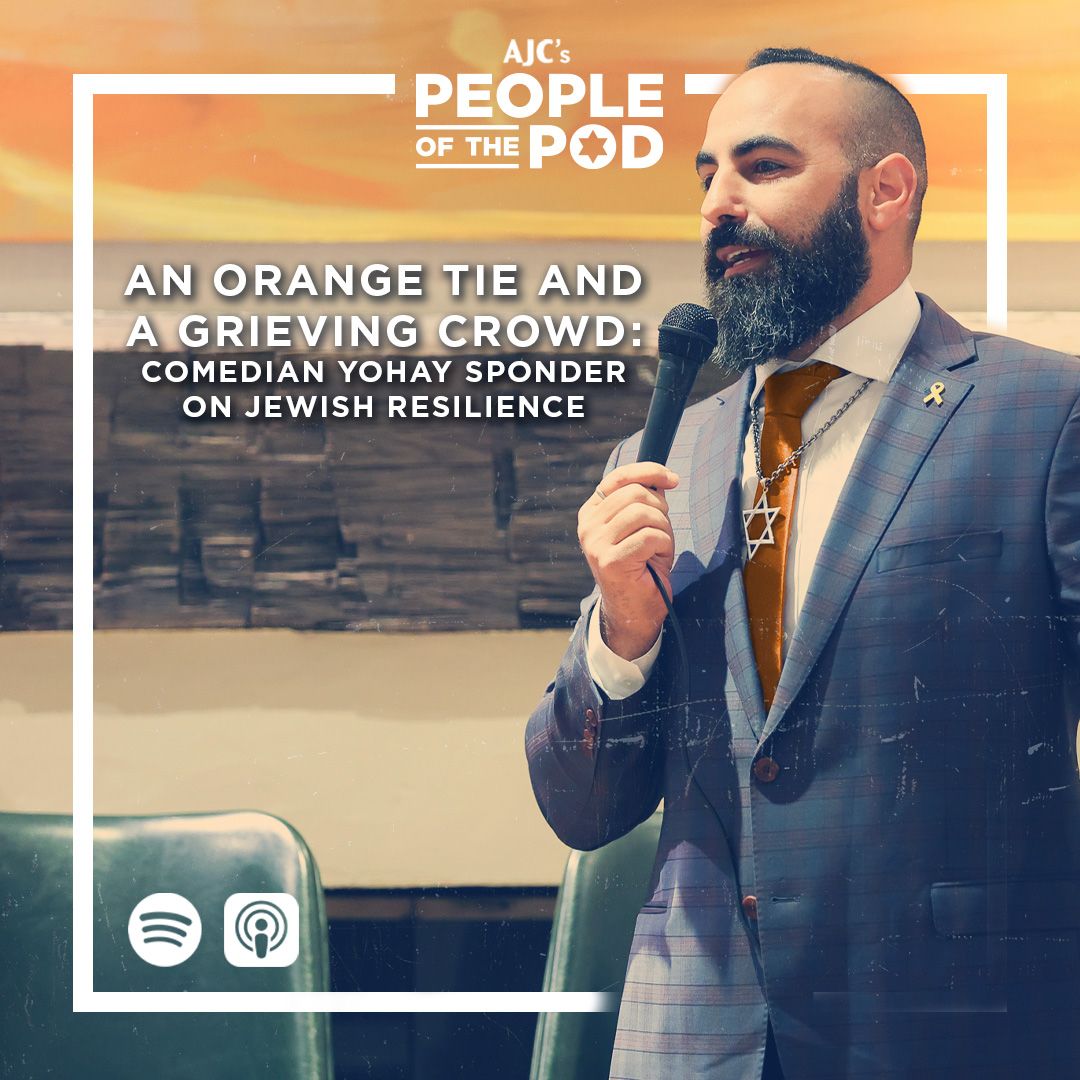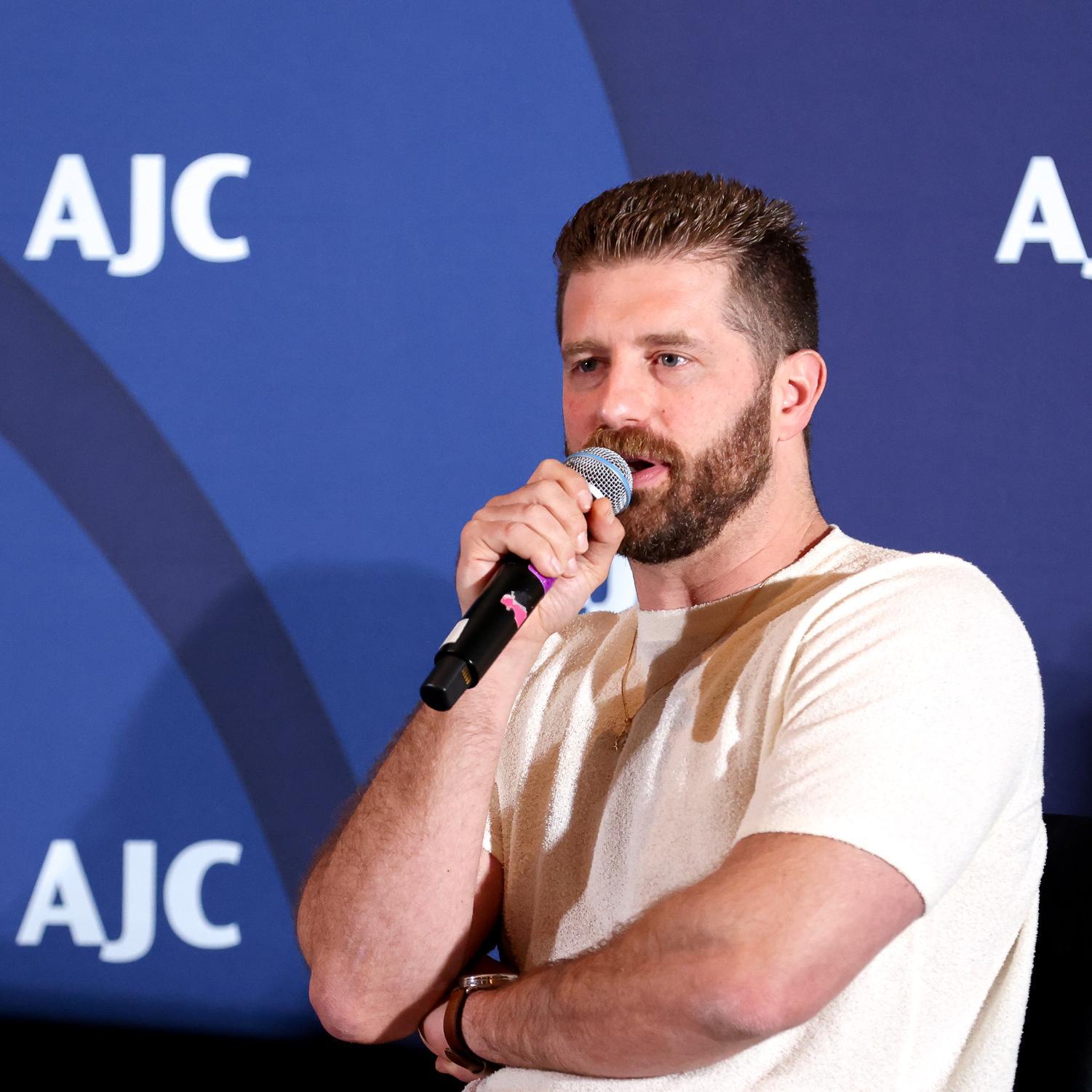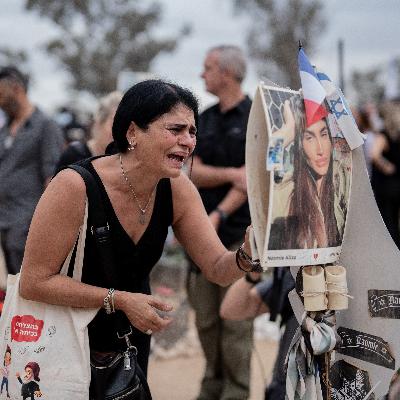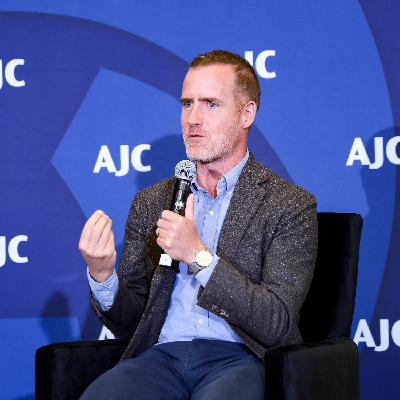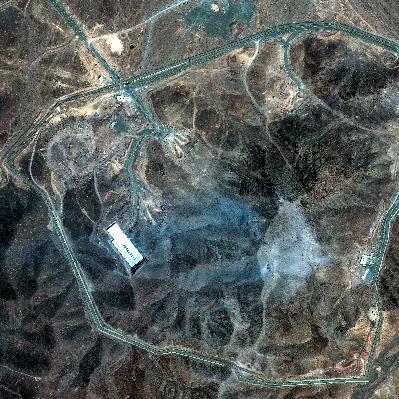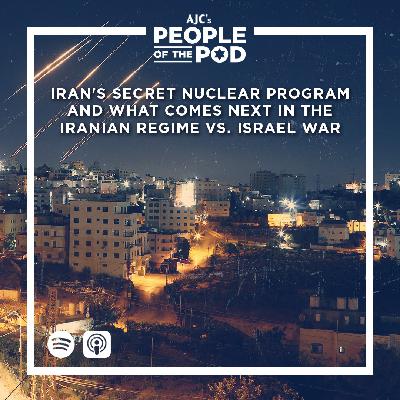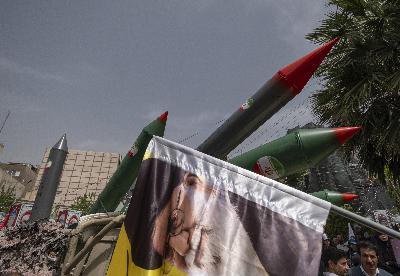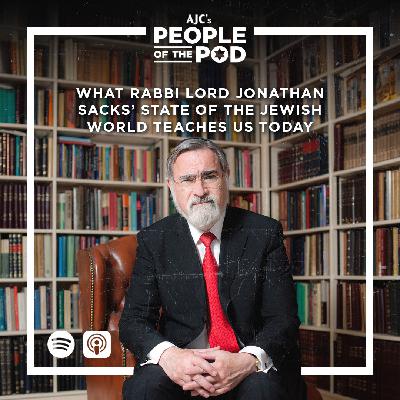Architects of Peace: Episode 4 - Partners of Peace
Description
Tune into the fourth installment of AJC's latest limited podcast series, Architects of Peace. Go behind the scenes of the decades-long diplomacy and quiet negotiations that made the Abraham Accords possible, bringing Israel, the United Arab Emirates, Bahrain, and later Morocco, together in historic peace agreements.
From cockpits to kitchens to concert halls, the Abraham Accords are inspiring unexpected partnerships. In the fourth episode of AJC's limited series, four "partners of peace" share how these historic agreements are reshaping their lives and work. Hear from El Mehdi Boudra of the Mimouna Association on building people-to-people ties; producer Gili Masami on creating a groundbreaking Israeli–Emirati song; pilot Karim Taissir on flying between Casablanca and Tel Aviv while leading Symphionette, a Moroccan orchestra celebrating Andalusian music; and chef Gal Ben Moshe, the first Israeli chef to ever cook in Dubai on his dream of opening a restaurant in the UAE.
*The views and opinions expressed by guests do not necessarily reflect the views or position of AJC.
Episode lineup:
El Mehdi Boudra (4:00 )
Gili Masami (11:10 )
Karim Taissir (16:14 )
Gal Ben Moshe (21:59 )
Read the transcript: https://www.ajc.org/news/podcast/partners-of-peace-architects-of-peace-episode-4
Resources:
AJC.org/ArchitectsofPeace - Tune in weekly for new episodes.
The Abraham Accords, Explained
AJC.org/CNME - Find more on AJC's Center for a New Middle East
Listen – AJC Podcasts:
Follow Architects of Peace on your favorite podcast app, and learn more at AJC.org/ArchitectsofPeace
You can reach us at: podcasts@ajc.org
If you've appreciated this episode, please be sure to tell your friends, and rate and review us on Apple Podcasts or Spotify.
Transcript:
El Mehdi Boudra: All the stereotypes started like getting out and people want to meet with the other. They wanted to discover the beauty of the diversity of Israel. And this is unique in the region, where you have Arabs Muslims, Arab Christians, Druze, Beta Yisrael, Ashkenazi, Sephardic Jews, Jews from India, from all over the world. This beauty of diversity in Israel is very unique for our region.
Manya Brachear Pashman: In September 2020, the world saw what had been years – decades – in the making: landmark peace agreements dubbed the Abraham Accords – normalizing relations between Israel and two Arabian Gulf states, the United Arab Emirates and the Kingdom of Bahrain. Later, in December, they were joined by the Kingdom of Morocco.
Five years later, AJC is pulling back the curtain to meet key individuals who built the trust that led to these breakthroughs and turning the spotlight on some of the results. Introducing: the Architects of Peace.
ILTV correspondent: Well, hello, shalom, salaam. For the first time since the historic normalization deal between Israel and the UAE, an Israeli and an Emirati have teamed up to make music. [Ahlan Bik plays]
The signs have been everywhere. On stages in Jerusalem and in recording studios in Abu Dhabi. [Camera sounds]. On a catwalk in Tel Aviv during Fashion Week and on the covers of Israeli and Arab magazines. [Kitchen sounds]. In the kitchens of gourmet restaurants where Israeli and Emirati chefs exchanged recipes.
Just days after the announcement of the Abraham Accords, Emirati ruler Sheikh Khalifa bin Zayed Al Nahyan formally ended the UAE's nearly 50-year boycott of Israel. Though commerce and cooperation had taken place between the countries under the radar for years, the boycott's official end transformed the fields of water, renewable energy, health, cybersecurity, and tourism.
In 2023, Israel and the UAE signed a Comprehensive Economic Partnership Agreement (CEPA) to advance economic cooperation, and by 2024, commerce between the UAE and Israel grew to $3.2 billion. Trade between Bahrain and Israel surged 740% in one year. As one of the world's most water-stressed countries, Bahrain's Electrical and Water Authority signed an agreement to acquire water desalination technology from Israel's national water company [Mekorot].
Signs of collaboration between Israeli and Arab artists also began to emerge. It was as if a creative energy had been unlocked and a longing to collaborate finally had the freedom to fly. [Airplane take off sounds]. And by the way, people had the freedom to fly too, as commercial airlines sent jets back and forth between Tel Aviv, Casablanca, Abu Dhabi, and Manama.
A gigantic step forward for countries that once did not allow long distance calls to Israel, let alone vacations to the Jewish state. At long last, Israelis, Moroccans, Emiratis, and Bahrainis could finally satisfy their curiosity about one another.
This episode features excerpts from four conversations. Not with diplomats or high-level senior officials, but ordinary citizens from the region who have seized opportunities made possible by the Abraham Accords to pursue unprecedented partnerships.
For El Medhi Boudra, the Abraham Accords were a dream come true. As a Muslim college student in 2007 at Al Akhawayn University in Ifrane, Morocco, he founded a group dedicated to preserving and teaching the Jewish heritage of his North African home. El Mehdi knew fostering conversations and friendships would be the only way to counter stereotypes and foster a genuine appreciation for all of Morocco's history, including its once-thriving Jewish community of more than 100,000.
Five years later, El Mehdi's efforts flourished into a nonprofit called Mimouna, the name of a Moroccan tradition that falls on the day after Passover, when Jewish and Muslim families gather at each other's homes to enjoy cakes and sweets and celebrate the end of the Passover prohibitions. Together.
El Mehdi Boudra: Our work started in the campus to fill this gap between the old generation who talk with nostalgia about Moroccan Jews, and the young generation who don't know nothing about Moroccan Judaism. Then, in the beginning, we focused only on the preservation and educating and the promotion of Jewish heritage within campuses in Morocco. In 2011, we decided to organize the first conference on the Holocaust in the Arab world.
Manya Brachear Pashman: So did the Abraham Accords make any difference in the work you were already doing? I mean, I know Mimouna was already a longtime partner with AJC.
El Mehdi Boudra: With Abraham Accords, we thought bigger. We brought young professionals from Morocco and Israel to work together in certain sectors on challenges that our regions are overcoming. Like environment, climate change, water scarcity and innovation, and bring the best minds that we have in Morocco and in Israel to work together. But we included also other participants from Emirates and Bahrain. This was the first one that we started with.
The second was with AJC. We invited also young professionals from United States and France, which was an opportunity to work globally. Because today, we cannot work alone. We need to borrow power from each other. If we have the same vision and the same values, we need to work together.
In Morocco, we say: one hand don't clap. We need both hands. And this is the strategy that we have been doing with AJC, to bring all the partners to make sure that we can succeed in this mission.
We had another people-to-people initiative. This one is with university students. It's called Youth for MENA. It's with an Israeli organization called Noar. And we try to take advantage of the Abraham Accords to make our work visible, impactful, to make the circle much bigger.
Israel is a country that is part of this region. And we can have, Israel can offer good things to our region. It can fight against the challenges that we have in our region. And an Israeli is like an Iraqi. We can work all together and try to build a better future for our region at the end of the day.
Manya Brachear Pashman: El Mehdi, when you started this initiative did you encounter pushback from other Moroccans? I mean, I understand the Accords lifted some of the restrictions and opened doors, but did it do anything to change attitudes? Or are there detractors still, to the same degree?
El Mehdi Boudra: Before the Abraham Accords, it was more challenging to preserve Moroccan Jewish heritage in Morocco. It was easier. To educate about Holocaust. It was also OK. But to do activities with civil society in Israel, it was very challenging. Because, first of all, there is no embassies or offices between Morocco. Then to travel, there is no direct flights.
There is the stereotypes that people have about you going to Israel. With Abraham Accords, we could do that very freely. Everyone was going to Israel, and more than that, there was becoming like a tendency to go to Israel.
Moroccans, they

